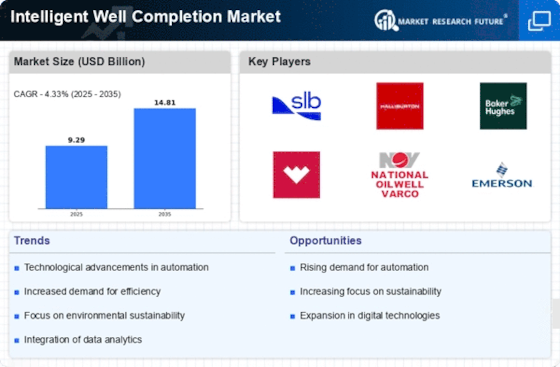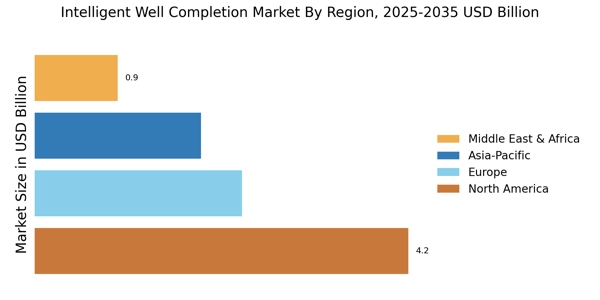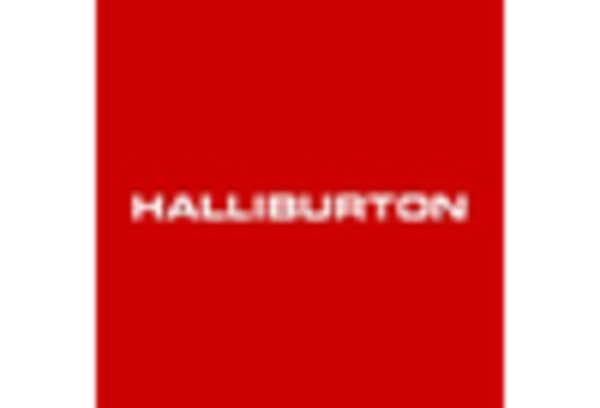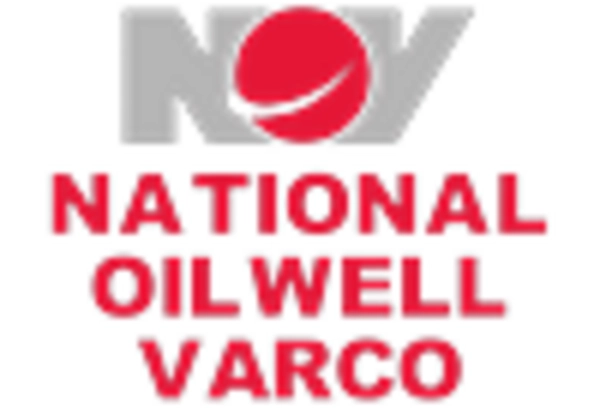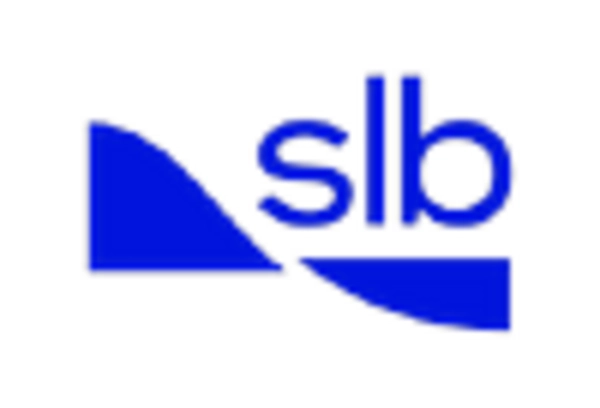Rising Energy Demand
The Intelligent Well Completion Market is significantly impacted by the rising global energy demand. As populations grow and economies develop, the need for efficient energy production becomes paramount. Intelligent well completion technologies offer solutions that enhance oil and gas extraction efficiency, thereby meeting this increasing demand. Market analyses indicate that the global energy consumption is projected to rise by 30% by 2040, necessitating advanced completion techniques to maximize output from existing wells. This trend is likely to drive investments in intelligent well completion technologies, fostering market expansion.
Enhanced Data Analytics Capabilities
The Intelligent Well Completion Market is benefiting from enhanced data analytics capabilities that allow for improved operational insights. The ability to collect and analyze data from various sources in real-time enables operators to make informed decisions regarding well performance and maintenance. Advanced analytics can lead to a reduction in downtime and an increase in production efficiency. Industry reports indicate that companies utilizing sophisticated data analytics tools can achieve up to a 20% increase in overall production. As the importance of data-driven decision-making continues to grow, the demand for intelligent well completion solutions is expected to rise.
Integration of AI and Machine Learning
The Intelligent Well Completion Market is witnessing a transformative shift with the integration of artificial intelligence and machine learning technologies. These advancements enable predictive analytics, which can forecast well performance and optimize production strategies. By analyzing vast amounts of data, AI can identify patterns that human analysts might overlook, leading to more informed decision-making. Reports suggest that the implementation of AI-driven solutions could enhance production rates by 15% to 25%. As operators seek to leverage data for competitive advantage, the adoption of AI and machine learning in well completion processes is likely to accelerate.
Technological Advancements in Drilling
The Intelligent Well Completion Market is experiencing a surge in technological advancements that enhance drilling efficiency and reduce operational costs. Innovations such as real-time data monitoring and advanced sensor technologies allow for better decision-making during drilling operations. According to recent estimates, the adoption of these technologies could lead to a 20% increase in drilling efficiency. Furthermore, the integration of automation in well completion processes minimizes human error and optimizes resource allocation. As companies strive to maximize output while minimizing costs, the demand for intelligent well completion solutions is likely to grow, driving the market forward.
Sustainability and Environmental Regulations
The Intelligent Well Completion Market is increasingly influenced by sustainability initiatives and stringent environmental regulations. Companies are under pressure to adopt practices that minimize their ecological footprint. Intelligent well completion technologies facilitate this by enabling more efficient resource extraction and reducing waste. For instance, the implementation of smart completion systems can lead to a reduction in water usage by up to 30%, aligning with global sustainability goals. As regulatory bodies impose stricter guidelines, the demand for environmentally friendly solutions in well completion is expected to rise, further propelling market growth.


